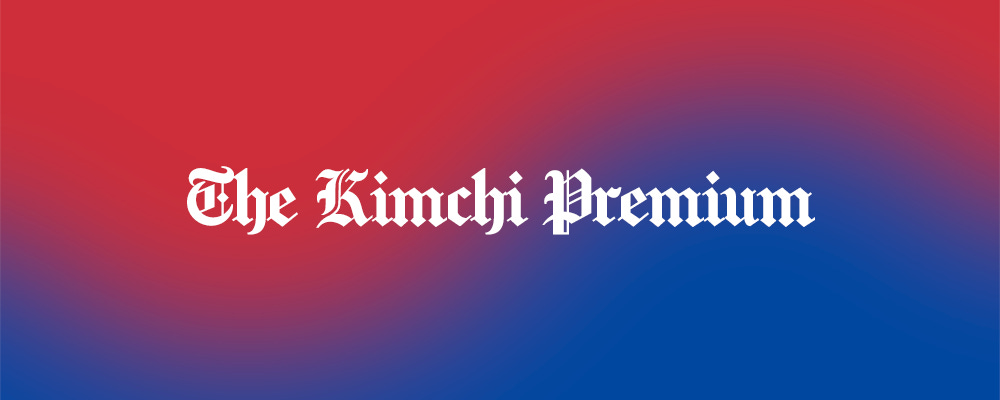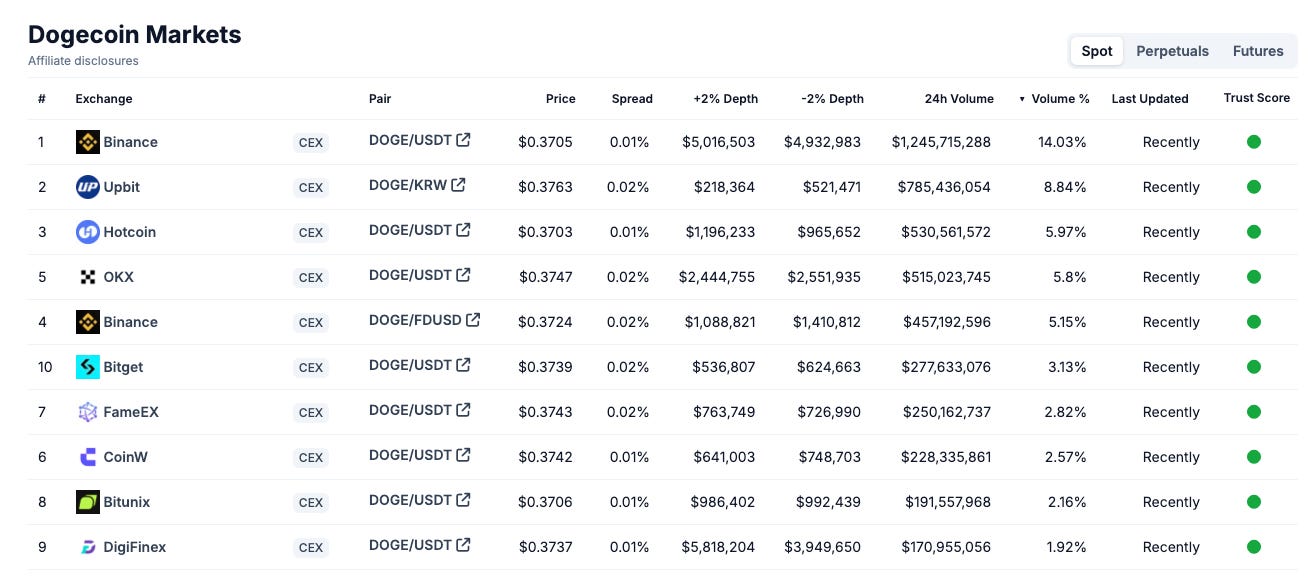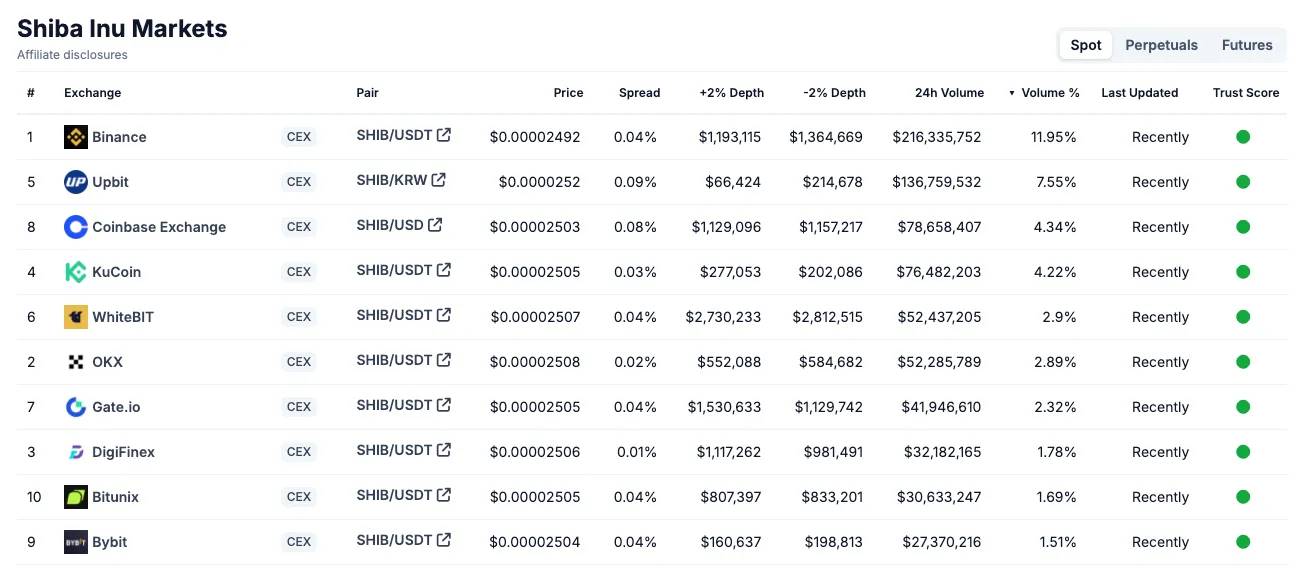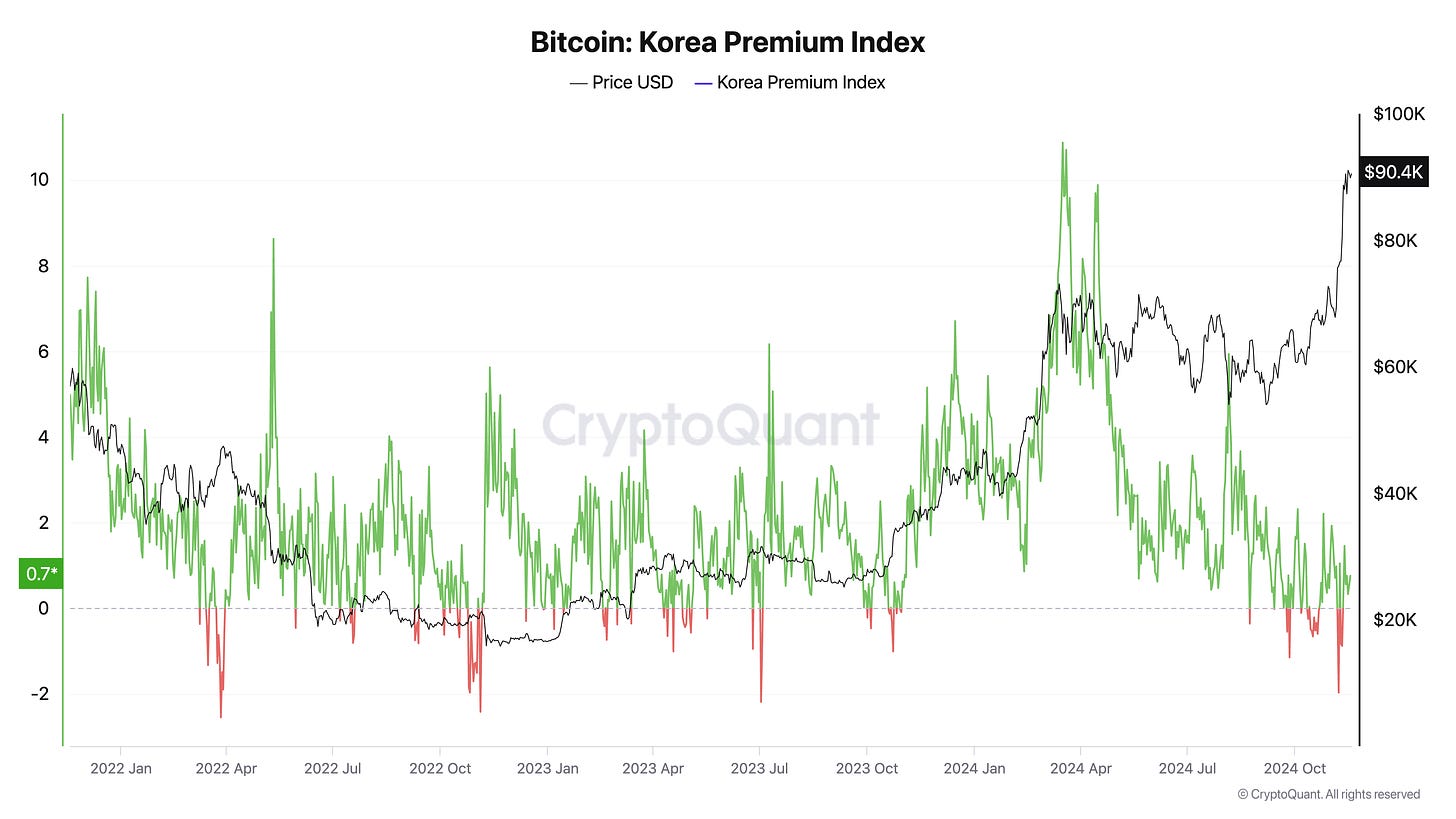Author: MORBID-19
Compiled by: TechFlow

I hope everyone can make life-changing money on the chain. No? Maybe you were sold off by the Korean market. I've seen dozens of profit and loss screenshots, with profits ranging from hundreds of thousands to millions of dollars. Even in real life, I've heard that some people I know have made quite a bit of money. Yes, if you don't trade Altcoins, you can't make money.
Until now, the public perception has been that Koreans only trade on centralized exchanges, mainly on Upbit. This is only partially true. When there are 1000x opportunities on-chain, what's the use of centralized exchanges?
However, when you look at $DOGE and $SHIB, Upbit is still the second-largest spot market.


"Don't ignore the crazy Korean buy-side" is an old saying.
This time, the taste of the Korean market is different
But where is the premium? Over the past few weeks, I've been talking about the Korean market premium as a sentiment indicator. If the Korean market premium reaches +10%, it's time to stabilize slowly. But this time it seems different. I see people checking their Binance portfolios on the subway, and friends asking about the situation with DOGE.
But why is there no 10% Korean market premium?

The Bit price reaching $90,000 is unbelievable. But this chart looks completely irrational. What's going on?
Aren't Koreans buying? No, they are. The projects recently listed on Upbit have all experienced significant increases.
Aren't new users increasing? No, crypto apps in Korea have been ranking high in app stores recently.
Have we gotten better at arbitrage? No.
If that's the case, why didn't we perform better earlier this year?
In fact, we have found a better way to arbitrage the Korean market premium. The team at Presto Research has done an excellent job in this area: while it may just be because "we're still in the early stages," Upbit's recent trading volume has exceeded $18 billion, far exceeding the $14 billion in March 2024, when the Korean market premium reached 10% and remained at 5%. So why is there no premium now?
So what has changed from March 2024 until now? I think the main reasons are: 1) USDT listing, 2) macroeconomic conditions, 3) implementation of the "Virtual Asset User Protection Act". Although Bithumb listed $USDT as early as December 2023, Upbit relatively late, in June 2024. Prior to this, most Korean investors used $TRX or $XRP to transfer cryptocurrencies from Korean exchanges to global platforms like Binance, Bybit and OKX. With the listing of USDT, it is now easier for people to arbitrage the premium and invest directly in the US dollar.
Especially with the weakening of the Korean won and the Korean stock market clearly underperforming cryptocurrencies and the US stock market, the interest in investing in the US dollar has increased significantly. This has led to an increase in USDT trading volume, which now accounts for about 9% of the market, compared to only 2.6% in December. It's worth noting that most trading pairs on Korean exchanges are in Korean won (e.g. BTC/KRW, ETH/KRW), not stablecoins. This means that the majority of USDT trading volume comes from the USDT/KRW trading pair.
So one of the simplest ways for Koreans to make money historically has been through trading the Korean market premium. This includes buying USDT, transferring it to overseas exchanges, earning profits, and returning to the Korean market when the premium appears (and earning profits in Korean won + Bithumb's zero-fee promotion after the law is implemented) - or simply buying USDT when the Korean market premium is low and selling when it's high. This trading has become more active, and I believe this is suppressing the Korean market premium.
-- Min Jung (Click here to read the full article)
Wow, I completely missed this point before. So, my previous assumption that the Korean market premium as a bull market indicator would disappear with the activation of institutional accounts is now completely outdated. The Korean market premium may no longer make any sense!
But is this a good or bad thing?
I'm not sure either. For Koreans, a lower Korean market premium means fairer pricing. But for the broader market, they lose an indicator of market tops.
However, I think Koreans are also slowly losing something. Just today, the Financial Supervisory Service (FSS) of Korea suggested allowing exchanges to freeze crypto trading accounts without notifying users.
Under the Virtual Asset User Protection Act, exchanges must disclose the reasons for freezing accounts before taking action. But the FSS wants to allow exchanges to pre-emptively freeze accounts in certain "special circumstances" to respond to hacks, fraud, and the familiar attempts at money laundering.
The principle is to provide prior notice, but they emphasize that the predictability of the reasons for account freezing and the purpose and intent of prior notice should be comprehensively considered.
The same applies when the National Tax Service or investigative agencies request account freezing and request delayed notification to achieve their investigative purposes.
The FSS stressed that if there are no unavoidable circumstances after careful consideration, prior notice must be provided.
Wait, what? They not only allow pre-emptive account freezing to protect consumers, but also to protect national interests? Who would have thought. This is another reason not to leave money in Korean exchanges. Imagine making five times your money on some random Altcoin on Upbit, only to have your funds frozen by the tax authorities.
To say the least:
Paju City in Gyeonggi-do Province announced plans to become the first local government in Korea to directly sell virtual assets confiscated from local tax debtors to collect overdue taxes.
To implement this plan, Paju City issued notices to 17 individuals who have accumulated 124 million won in local tax arrears on the 13th, warning them that their virtual assets will be transferred and sold.
The city has already confiscated the virtual assets of these tax debtors through cryptocurrency exchanges. If these people fail to pay the overdue taxes by the end of this month, the city government plans to transfer about 50 million won worth of virtual assets to their accounts to offset the unpaid taxes.
According to the city government, virtual assets have recently been used by tax debtors as a means to hide or transfer assets. A city government official explained, "By collecting through virtual assets, we have sent a clear message to the debtors that they cannot hide their assets, and we will continue to track the debtors' property until the final tax collection measures are implemented." -- KBS News
Why would Koreans choose to keep their funds in exchanges? Why would they want to convert their cryptocurrencies to Korean won? As the market grows, this question becomes more apparent. If everyone knows that crypto assets can be so easily confiscated, who would still want to keep them in Korean exchanges?
If cryptocurrencies really are a trillion-dollar opportunity, and governments are willing to support them, then capital must be able to flow freely. There are reasons why people prefer to use the US dollar over the renminbi, as the latter may be confiscated.
It is precisely because of the possibility of "being confiscated" that the cryptocurrency industry was born. Imagine an industry that is accepted but reverts to past thinking patterns, which is unreasonable.
These protectionist and high-control measures will only increase capital outflows, especially in high-risk on-chain activities. Assets will remain on the chain, and what they want to protect will be destroyed due to the fear of losing it.








